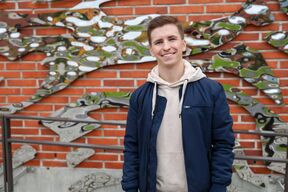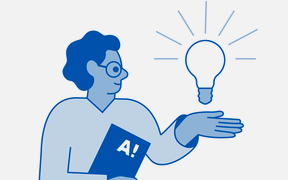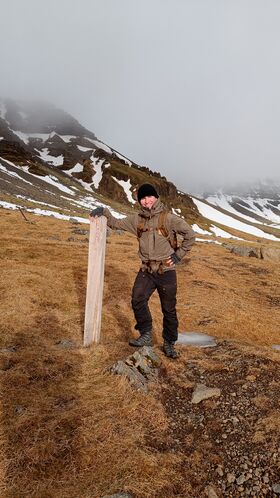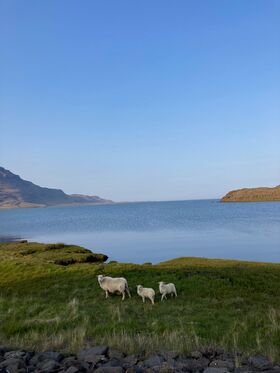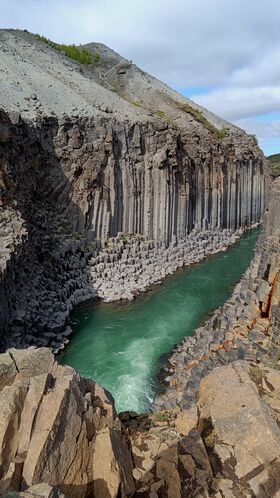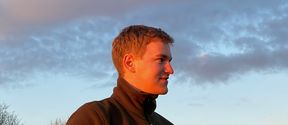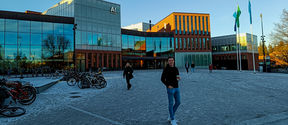For my bachelor’s degree, I studied Bioinformation Technology, because I was very interested in the interface between biology and technology. Towards the end of my studies, I participated in an info event on master’s studies organised by Inkubio, the guild of BioIT. There I had the opportunity to discuss future studies and employment opportunities with those who had continued on the BioIT track or had already graduated. The event was rewarding, because it gave me clarity: even though the field interested me a lot, it would not lead me down the career path I really wanted. After some consideration, I ended up switching my major to Electrical Power and Energy Engineering within the Automation and Electrical Engineering master’s programme in the School of Electrical Engineering. It seemed to better match my employment aspirations.
France – a wonderful country but an academic nightmare
I started my master’s studies in the fall of 2023, and at the same time I decided to apply for an exchange period. During my bachelor’s degree I had resisted the idea of going on an exchange because I wanted to focus on my studies. While working on my thesis, something changed and the idea began to interest me.
France was the obvious first choice for an exchange destination, as the country has always fascinated me greatly, and I also know a little bit of the language (after all, my partner is a French teacher). I am also a passionate skier and wanted to fulfil my lifelong dream of skiing in the Alps. I ended up applying for an exchange to Grenoble, an alpine city in the south of France, and I was accepted to Grenoble UGA:INP, a technical university.
I had to be careful when choosing courses – unlike in Finland, in France most master's level courses are taught in French and there are only a handful of courses in English. I chose every single course taught in English and still barely scraped together the minimum number of credits.
The six months in France were one of the best experiences of my life, but academically it was a disaster. Either due to poor communication or my own misunderstanding – I'm still not sure which it was, and it doesn't matter anymore – I had ended up in France to do master’s level studies in a field I had no previous experience with or background in. Understandably, I wasn't having much fun with my studies, trying to push myself just to keep up.
The language barrier was the biggest challenge. The French are understandably very protective of their language, and English is only used when necessary. Since I can’t fluently converse in French, I could not fit into local circles or overcome the feeling of being an outsider. I heard similar stories from other exchange students. In addition, the French bureaucracy in all its manifestations is also significantly more rigid, unclear and burdensome compared to what we are used to in Finland.
I want to be open and honest about the setbacks I encountered, because I don’t want anyone to think that exchange studies are just carefree fun. However, I don’t want to scare anyone away from their exchange plans, and instead give a realistic picture of my own experiences. Everything else in France besides the studies was great. The food was good and cheap, the buildings were magnificent, and the nature was beautiful. The weather was always good. The best thing by far was that the university’s skiing association organized a trip to the Alps every Saturday. Transportation and lift tickets only cost a few dozens of euros in total, so even a student budget could afford to go to one of the area's ski resorts every time.
A half-year exchange turns into a year-and-a-half adventure
While still in Finland, I had stayed behind after a lecture to listen to a presentation by a representative from Reykjavik University, talking about a double degree programme in Iceland. The idea stayed with me, but at that moment I didn’t think about it further.
The application period for the double degree programme began while I was in France, and this time I seriously considered it. The thought of jumping from one exchange straight into another felt crazy. However, there were no practical obstacles – so I had to take the opportunity. I knew that otherwise I would have regretted it, or at least ended up thinking about what I’d missed out on.
During the last weeks I spent in France, I found out that I had been accepted to Iceland. I had to rush into getting my affairs in order in Finland. After all, I had assumed I would only be away for half a year, not a year and a half!
Take it or leave it
I had no choice when it came to the double degree’s destination country, so going to Iceland was more of a take it or leave it situation. And I decided to take it.
The Electrical Power and Energy Engineering majors at Aalto University and Reykjavik University are almost identical in their content and practices. A professor who had taught at Aalto for some twenty years before coming to Iceland noticed these similarities and took the initiative to propose a double degree programme between the universities. Several Icelandic students have already done their share in Finland, but I was the first Aaltonian to leave for Reykjavik.
This double degree programme has strict criteria. The applicant has to be studying Electrical Power and Energy Engineering as their major within the Automation and Electrical Engineering master’s programme. They have to be a first-year master’s student and have accumulated at least 60 credits with a minimum GPA of 3.0 during this first year. For me this last condition was a bit complicated since half the credits from my first-year studies were from the French university, and it wasn’t a given that they would be accepted in Iceland. Ultimately, with the help of really helpful study coordinators at both Aalto and Reykjavik, we were able to arrange it so that I could be accepted into the programme. Under normal circumstances the process should be much more straightforward.
After completing the double degree programme, I received a master’s degree from both universities – so two for the price of one.







